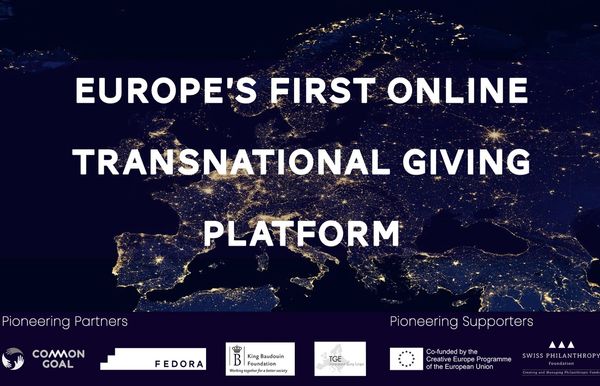
First transnational giving platform launches to facilitate European cross-border philanthropy
July 1, 2020
European Foundation Centre appoints Delphine Moralis as chief executive
July 16, 2020Unveiling the latest charity income growth figures, the National Council for Voluntary Organisations (NCVO) said today that the UK voluntary sector will inevitably shrink in the immediate future, at least.
However, the sector body adds that it’s too early to determine the full extent of the impact of the coronavirus pandemic on the charity sector’s finances.
The comments came as NCVO published its annual UK Civil Society Almanac, which reveals the latest and most comprehensive data from charities’ annual accounts.
Modest income growth
The Almanac reveals that the voluntary sector experienced modest income growth of 2% (£1.2 billion) in 2017/18 taking the total annual income to £53.5 billion. Almost half of this increase was accounted for by two individual legacies that totalled £555 million.
The forecasted economic downturn is likely to have a direct impact on income from the public. During lockdown, voluntary incomes were not hit as hard as expected. According to a joint survey by the Institute of Fundraising, NCVO, and Charity Finance Group, voluntary income from the public (ie charitable donations and legacies) dropped by 14% whereas trading income fell by 72%.
Proportion of government income at its lowest level
Government income grew £280m from the previous year to £15.7bn in absolute terms but remained at its lowest point on record as a proportion of the sector’s total income in 2017/18, at 29%. This reflects other income streams outpacing growth in income from government. The increased reliance on other sources of income further suggests that a decrease in income from the public will negatively impact the sector.
Reserves reach pre-financial crisis levels
Reserve levels completed their recovery to pre-financial crisis levels, hitting £63.5 billion, up from £58.4 billion in 2016/17, inching over the previous high of £63.2 billion in 2007/08. However, the value of reserves held as shares will have fallen subsequently as share values tumbled during the coronavirus pandemic.
Employment in the voluntary sector represents 3% of UK workforce
Employment hit a record high of 900,000 in 2019, representing almost 3% of all the total UK workforce. However, the predicted loss of income will instigate restructures within charities and see redundancies across the voluntary sector.
Shift in volunteering
Volunteering rates have remained stable over the last few years. In 2018/19, 22% of people regularly volunteered with a group, club or organisation. While the pandemic is unlikely to influence the overall numbers of people volunteering in the UK, we will likely see significant changes in terms of how people volunteer and who volunteers. In usual circumstances, people aged 65–74 are the age group most likely to volunteer regularly. But as this age group is most at risk of the virus, this could pose additional challenges.
Karl Wilding, NCVO chief executive, said:
“Charities have a vital part to play in tackling coronavirus, and in helping the country rebuild after the crisis and beyond. The way in which we saw charities and volunteers collectively support their communities during lockdown was a clear example of the immense difference the sector makes to our society.
“Despite this, the voluntary sector will inevitably shrink in the immediate future. Public income being the main source of income growth means that social distancing restrictions and a reduction in people’s disposable incomes will have a direct impact on charities’ incomes. Undoubtedly, this will result in job losses, a possible reduction in services and the closure of some charities.
“We will continue to make the case to government, charities and volunteers can reboot the economy, reconnect our communities and contribute to positive social and wellbeing outcomes at a time of extreme challenge. Helping those affected by business closure or job losses, supporting good mental health, and supporting individuals and communities in need – all of which are central to getting the country back on its feet.”




